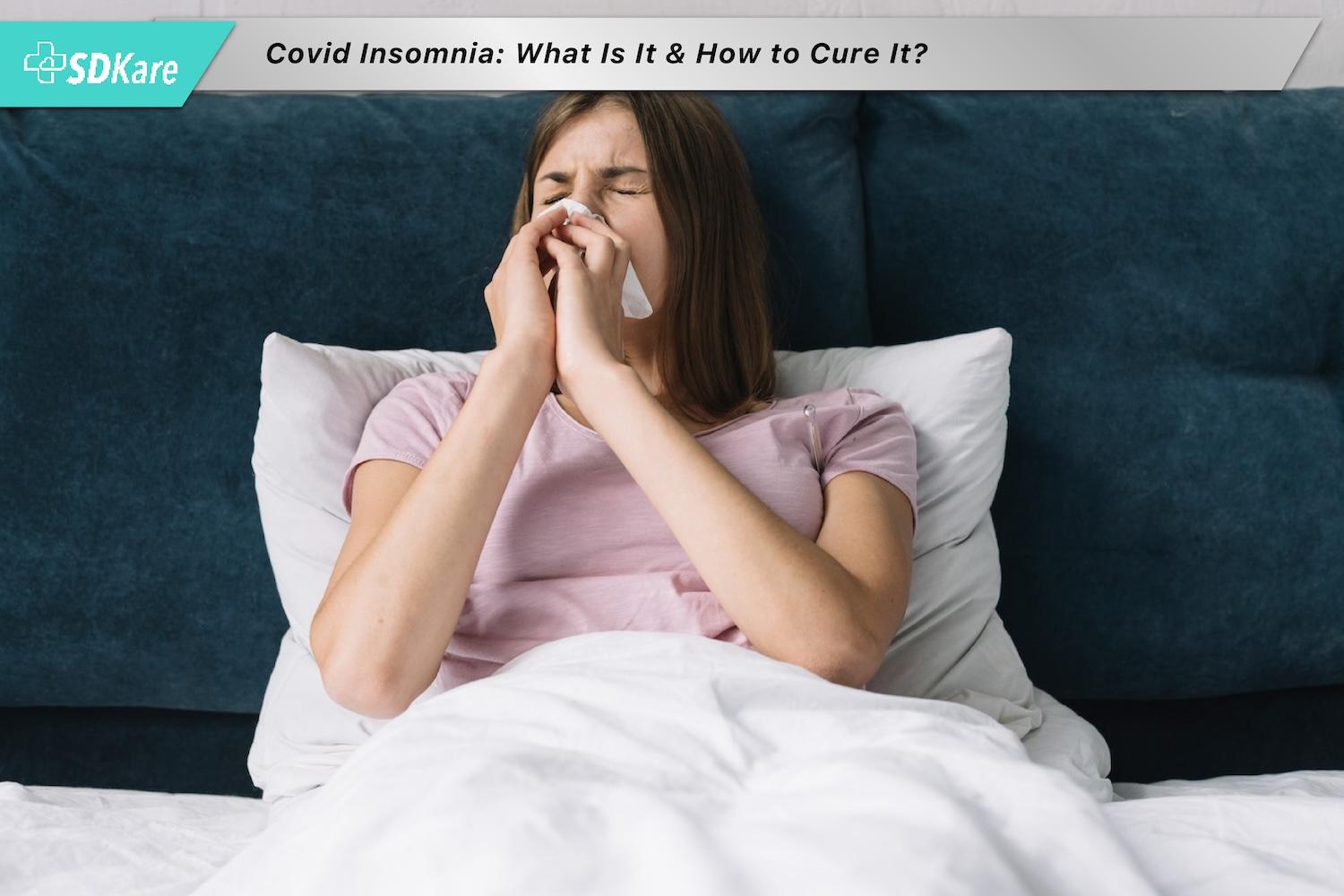In the wake of the global pandemic, many individuals have found themselves with an unexpected challenge. This sleep disorder, directly linked to the stress and uncertainty brought about by the ongoing health crisis, has become a prevalent concern for countless people around the world. In this article, we delve into the subject of Covid Insomnia, exploring its roots and offering practical solutions to help you regain a restful night’s sleep.
The Impact of Covid Insomnia:
Covid Insomnia is not just another buzzword; it’s a real and tangible issue affecting individuals of all ages and backgrounds. The stress, anxiety, and disruptions to daily routines caused by the pandemic have created a perfect storm for sleep disturbances. From difficulty falling asleep to frequent waking during the night, the symptoms of Covid Insomnia can significantly impact one’s overall well-being.
Does Covid Cause Insomnia?
The most commonly asked question is that can covid cause insomnia? Yes, COVID-19 can contribute to the development of insomnia. The stress, anxiety, and disruptions caused by the pandemic can have a profound impact on mental health, and sleep problems, including insomnia, are common manifestations of this impact. The constant influx of pandemic-related information, concerns about personal health, and overall uncertainty can create a heightened state of alertness, making it challenging for individuals to relax and fall asleep.
Furthermore, the physical symptoms of COVID-19, such as coughing, difficulty breathing, and fever, can also directly interfere with sleep. The combination of psychological and physiological factors associated with COVID-19 can disrupt the normal sleep-wake cycle and contribute to the onset or exacerbation of insomnia. If someone is experiencing persistent sleep issues related to COVID-19, it’s advisable to seek guidance from healthcare professionals for proper evaluation and management.
Understanding the Connection:
To effectively address Covid and Insomnia, it’s crucial to recognize the intricate connection between the global health crisis and sleep patterns. The constant barrage of pandemic-related news, coupled with concerns about personal health and safety, has created a heightened state of alertness in many individuals. This heightened stress response, in turn, disrupts the natural sleep-wake cycle, leading to insomnia.
Is Insomnia a Symptom of Covid?
Yes, insomnia can be a symptom of COVID-19. While respiratory symptoms like cough, shortness of breath, and fever are more commonly associated with COVID-19, sleep disturbances been reported as well. The stress, anxiety, and overall impact of the illness on mental health can contribute to sleep problems.
It’s important to note that individual responses to insomnia covid can vary, and not everyone with the virus will experience the same symptoms. Insomnia may occur as a secondary effect of the physical and emotional stress associated with the illness. If someone suspects they have COVID-19 and is experiencing sleep disturbances along with other symptoms, it’s recommended to consult with healthcare professionals for proper evaluation and guidance.
Identifying Covid Insomnia Symptoms:
Recognizing the symptoms of Covid Insomnia is the first step towards finding a suitable solution. Common signs include trouble falling asleep, frequent nighttime awakenings, and an overall decline in sleep quality. Additionally, individuals with Covid and Insomnia may notice increased irritability, fatigue, and difficulty concentrating during the day.
Transitioning to Solutions:
Now that we’ve explored the challenges posed by Covid Insomnia, let’s transition into practical solutions to help you overcome this sleep disorder and restore balance to your life.
Establishing a Consistent Sleep Routine:
One effective way to combat Covid Insomnia is by establishing a consistent sleep routine. Going to bed and waking up at the same time each day helps regulate your body’s internal clock.
Creating a Relaxing Bedtime Environment:
Transform your bedroom into a sanctuary for rest by minimizing distractions and optimizing comfort. Dim the lights, invest in comfortable bedding, and consider using blackout curtains to create an ideal sleep environment.
Limiting Screen Time Before Bed:
The blue light emitted by screens can interfere with your body’s production of melatonin, a hormone essential for sleep. To mitigate this, limit screen time at least an hour before bedtime and opt for calming activities instead.
Incorporating Relaxation Techniques:
Explore relaxation techniques such as deep breathing exercises, meditation, or gentle yoga before bedtime. These practices can help calm the mind and signal to your body that it’s time to unwind.
Seeking Professional Guidance:
If your Covid Insomnia persists, consider seeking guidance from a healthcare professional. They can provide personalized advice, recommend therapies, or discuss the potential benefits of medication to address your specific situation.
Repeated Emphasis on Covid Insomnia:
As we understand the solutions to Covid Insomnia, it’s essential to recognize that overcoming this sleep disorder requires different methods. By adding these strategies into your daily routine, you can gradually reclaim restful nights. This will also improve your overall quality of life despite the ongoing challenges posed by the global pandemic.
Conclusion:
In conclusion, Covid Insomnia is a genuine concern that demands attention and proactive management. By understanding the link between the covid and insomnia you can regain control over your sleep patterns. With proper commitment, you can conquer insomnia and covid and enjoy the benefits of a good night’s sleep.





